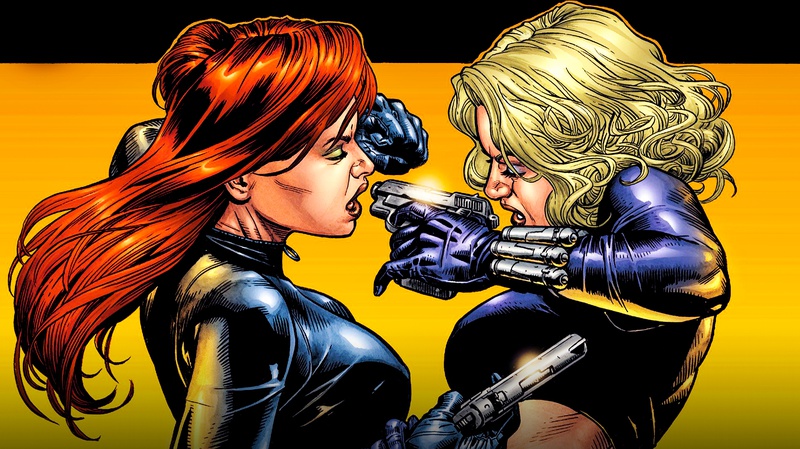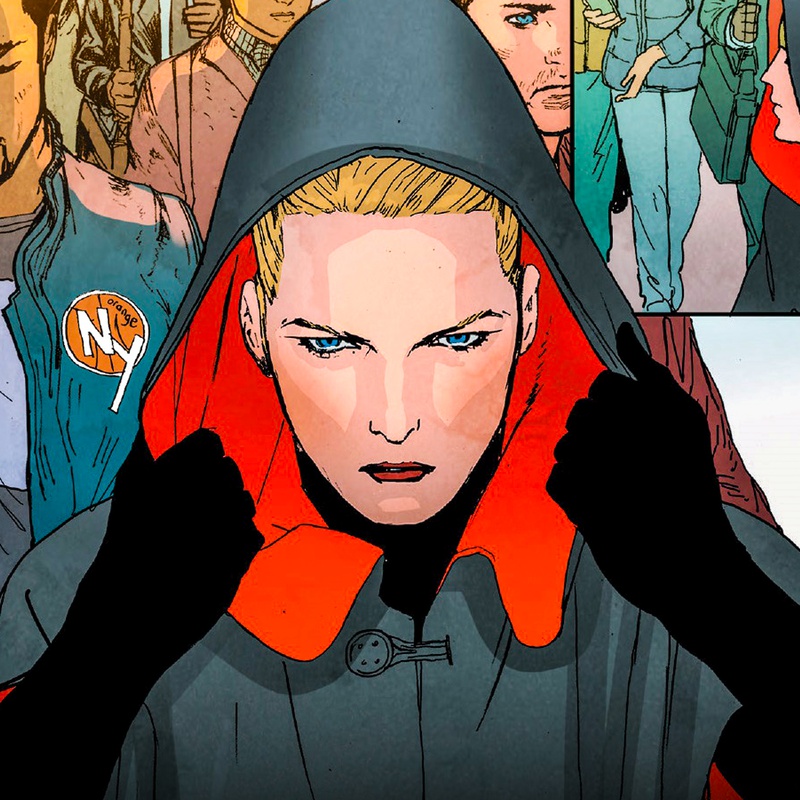
Warning - This article contains spoilers for Black Widow.
Black Widow has been a long time coming. Since her debut in 2010's Iron Man 2, Scarlet Johnsson’s Natasha Romanoff has played a key role in many events in the MCU. This includes the formation of The Avengers, the destruction of SHIELD, and even going against the Sokovia Accords.
Of course, her biggest moment came when she decided to sacrifice her life so that Clint Barton could bring the Soul Stone to the present—so that she could save the family that meant so much to her alongside 50% of the universe, of course.
Her death made something obvious, though: Natasha deserved far more time in the spotlight. Thankfully, Marvel Studios saw it fit to do just that, even though her character was still dead on Vorimir.
Black Widow, a solo film long overdue, has finally hit theaters for the world to see, having been the victim of several delays due to the COVID-19 pandemic. Natasha Romanoff finally got the solo film that she deserved—one worthy of its place within the MCU.
While Avengers: Endgame put lots of focus on Natasha’s deep connection to the Avengers and how much that family meant to her, Black Widow introduced her first family to audiences: one from her childhood.
YELENA BELOVA, LITTLE SISTER

One of the core emotional pillars of the film lies with this Russian family of Natasha’s, with whom she spent three years of her childhood undercover in Ohio. Of course, on paper, the family wasn’t real—it was all set up, with no one actually being of the same blood.
But, that didn’t stop connections from forming. Bring in Yelena Belova, the youngest of the group, who had no idea at the time that everything was fake. It was a real family to her, all of it meant the world to her. That’s something she held on to even as she entered the sadistic Red Room, spanning all the way up to where the movie picks up from.
It’s not long before she crosses paths with Natasha Romanoff for the first time since their separation going into the Red Room. She is a person that Yelena truly considers to be her big sister—a sentiment that Natasha shares as well, even if it isn’t always so clear to her little sister.

Still, there’s no getting around the fact that Yelena is the one that never escaped. She had to endure the Red Room and all of its horrors for much longer than her big sister. She didn’t get out—and from where she was, Natasha never tried to come to rescue her.
It all creates a fantastic dynamic between the two of them, whose relationship is one of the most enjoyable parts of the film. Their banter, closeness, and understated understanding of each other contribute to this. Their emotional storylines reach a touching ending where Natasha finally embraces her former family and vocally expresses this to her little sister.
As strong as their connection was and how well it fits the MCU narrative, it’s not something that originally existed between the two. They aren’t family in any form, and neither grew up with one another. There’s only one thing the two have in common in the pages of Marvel Comics: the Red Room.
YELENA BELOVA, THE RIVAL

Yelena Belova is a character that is more recent to the comics than many might think, making her debut in Inhumans (Vol. 2) #5 in January 1999. Here, though, she has no connection to Natasha Romanoff—and the two are certainly not family in even the most remote sense. The only connection between the two belongs to the Red Room, where both grew to become great assassins.
In the film, both Yelena and Natasha entered the Red Room at the same time after their arrival to Russia—though it wasn’t Natasha’s first time, having already been indoctrinated, tested on, and trained in combat at a young age. So, while this was all new to Yelena, Natasha knew what her younger sister was going to have to endure, or, at least, almost.
There were differences in the training that the two received. Natasha’s training was more classical brainwashing whereas Yelena’s ended up being a chemically induced control agent as explored within the film. It’s also heavily implied that the two didn’t really interact much during their time in the Red Room. Their combat training seems to have been roughly the same, with both knowing the same exact move set as demonstrated by their reunion.
In the comics, Natasha Romanoff entered the Red Room prior to Yelena’s time and was part of the Black Widow Ops Program. There, she underwent many of the same processes that have been shown off or alluded to in the MCU, including espionage, weapon, and physical training—but, for Romanoff, there was more. In this program, biochemical enhancements were employed for its agents. These same biochemical enhancements also implanted false memories within their subjects.
Yelena did not get this same treatment. Her Red Room training took place under different management in the 1970s and simply provided physical training.
Don’t get confused, though. The Red Room’s form of simple training is quite skewed. Yelena became one of their best operatives—even surpassing Natasha Romanoff’s previous records in many areas.
While in the movie the two were sisters, the comics have something else in mind: rivals. Yes, the two have a playful rivalry in the film—but they have much more than that on top of the fun competition. When it comes to the comics, that rivalry is most of what the two have.
Yelena made it her life mission to always attempt to one-up Natasha and do better than her. In fact, one time Yelena spared her life just so she could keep proving herself better. Yelena was a little obsessed, to say the least.
YELENA BELOVA, THE WHITE WIDOW

The two did work a mission or two together over the course of their various storylines, which mostly ended in Natasha teaching Yelena hard life lessons in the harshest ways. Eventually, Yelena broke away from her Natasha obsession, at least, for a bit.
Mostly, Yelena has been portrayed in the comics as more of a villainous force. She went on to get in the crosshairs of groups like the New Avengers and Secret Avengers while also having been involved with the morally questionable secret black-ops team named Vanguard.
Of course, as comics do, Belova’s story took a crazy turn. To skip over the more confusing stuff, the summation of the next step in her journey is this: clones. Yes, Yelena went through a clone phase. One which began in her death, thanks to none other than Natasha Romanoff—who killed her so that she wouldn’t interfere with her plans to take down the Red Room.
Romanoff didn’t stop there, though, as she ended up killing another of her clones for various reasons. Though, at some point, she must have felt bad since she spared the third clone—implanting the memories of the original Yelena in the remaining clone as a way to amend having killed her.
After all of that, her newly alive clone filled with the original Yelena’s memories allied with Natasha and took on the mantle of White Widow. White Widow’s first appearance was rather recent, having occurred in Tales of Suspense #103 in March 2018. So, she hasn’t done too much of note since.
YELENA, WHY THE CHANGES?

With the recent status quo change in the comics to White Widow, the precedent for a heroic Yelena has been set, and that’s the important part because that is likely to be what Marvel is going to build to over the course of the next few years; Yelena Belova can make her late big sister proud.
The Yelena that fans got in Black Widow is likely to better fit the MCU and service the many storylines weaving through the expansive cinematic universe in a more organic way. Going forward, Yelena is set to play a big part in storylines yet to play out. For all intents and purposes, she is to fill the void left by Scarlet Johansson’s departure.
Yelena will be the new Black Widow, though it is more likely that she will take on the moniker of White Widow. This would be to not only take on her own name but to not erase the memory and legacy that Natasha left and honor the Widow name. There were a lot of white suits in Black Widow, so there’s no way the thought didn’t cross Marvel Studios President Kevin Feige’s mind.
Marvel clearly didn’t want to put all its focus on the darker, more villainous side of the character, as she is portrayed the most in the comics. Heroism seems to be the end goal for her, though, clearly, it isn't forgetting the gray area of the character—working for the shady Val for money certainly isn’t something one categorizes as heroic.
With that after-credits stinger of Black Widow, Yelena’s first solo storyline has been set up. It’s hard to see how that whole situation wouldn’t be cleared up quickly after a conversation or two, but, who knows.
Fans will have to wait until Hawkeye’s inevitable release on Disney+ to see where Yelena goes from here.












